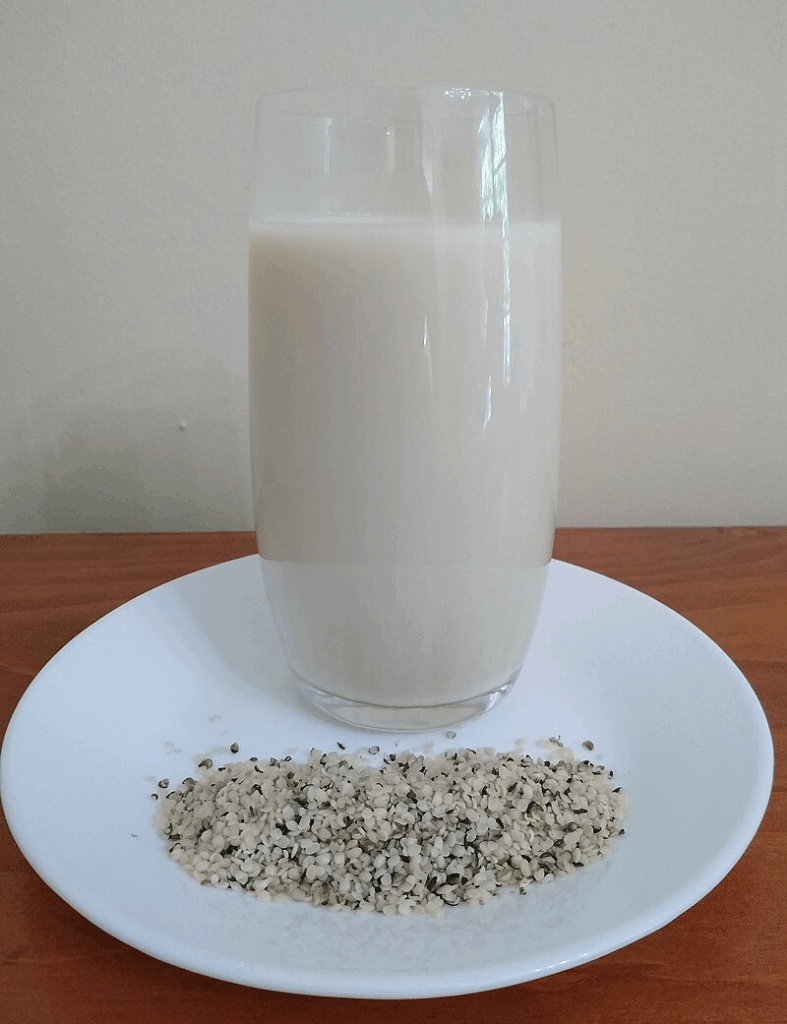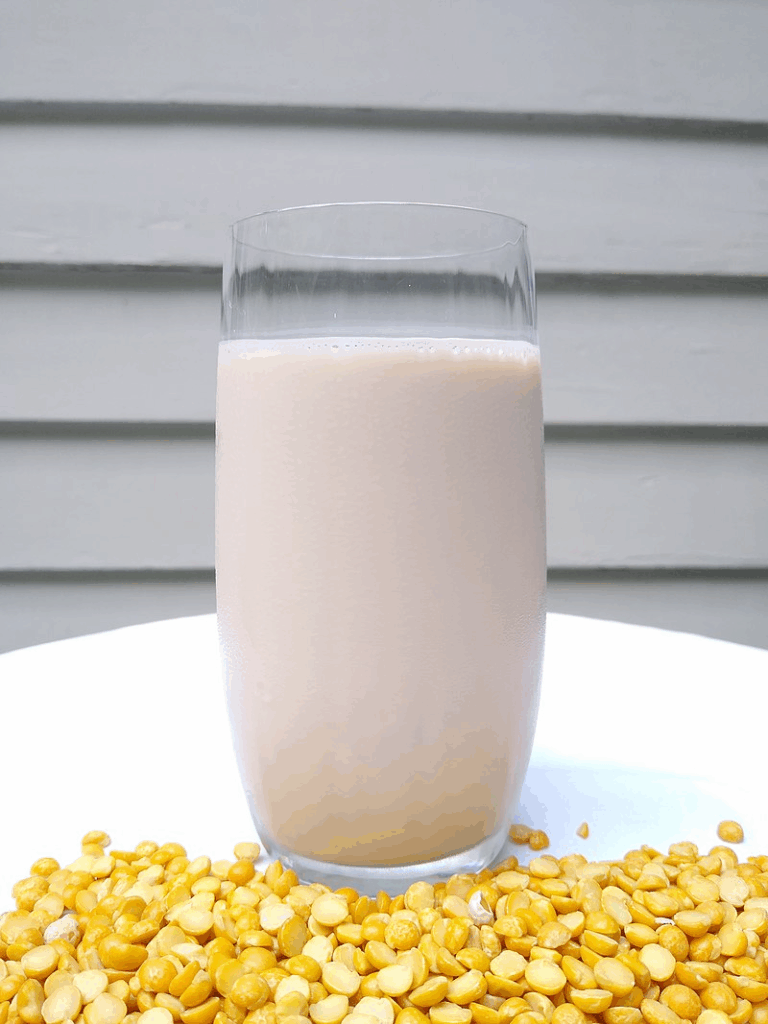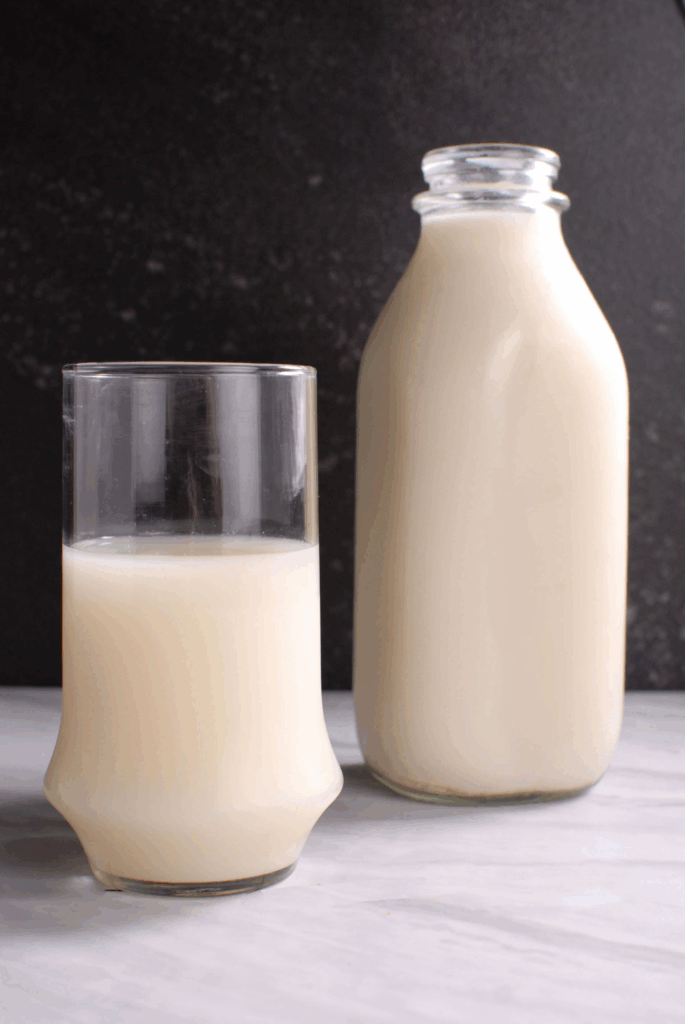In this post, I am going to cover PlantBased Dairy Substitutes, which gained prominence amongst people who are more health conscious, vegans, or those with recommended diets.
These non-dairy substitutes such as almond, soy, oat and coconut milk have their own distinctive flavors and nutritional values.
For whatever reason, whether it be health, ethical or environmental, plant-based alternative to dairy milk is more flexible and less harmful compared to real dairy.
Key Points & Plant-Based Dairy Alternatives List
| Plant-Based Milk | Key Point |
|---|---|
| Almond Milk | Low in calories, rich in vitamin E, mildly nutty flavor. |
| Soy Milk | High in protein, closest to cow’s milk nutritionally, good for cooking. |
| Oat Milk | Creamy texture, high in fiber, good for heart health. |
| Coconut Milk | Rich and creamy, distinct tropical flavor, higher in saturated fats. |
| Cashew Milk | Creamy and smooth, good for sauces and desserts, lower in protein. |
| Rice Milk | Naturally sweet, hypoallergenic, lowest in fat and protein. |
| Hemp Milk | Contains omega-3 fatty acids, earthy taste, good for skin health. |
| Pea Milk | High in protein, creamy texture, allergen-friendly. |
| Hazelnut Milk | Sweet, nutty flavor, rich in antioxidants and healthy fats. |
| Flaxseed Milk | Rich in omega-3s, low in calories, good for heart health. |
10 Plant-Based Dairy Alternatives
1.Almond Milk
Blending almonds with water and straining the mixture produces almond milk, which is a widely accepted dairy-fre. option. Almond milk is rich in Vitamin E, an antioxidant that helps maintain skin health.

Although it contains lower protein levels than dairy milk, it is oftentimes fortified with calcium, Vitamin D, and B12. Its light nutty flavor works well with smoothies, baking, coffee, and even cereal. Unsweetened versions are great for people looking for low sugar options.
From an environmental standpoint, almond trees require substantial amounts of water, which may concern eco-friendly consumers.
Features Almond Milk
- Considerably low in calories and fat
- vitamin E, antioxidants are rich in almond milk
- Has a mild nutty flavor and is good for smoothies and baking
- calcium and vitamin D are often added to almond milk
2.Soy Milk
Soy milk is produced from soaked and ground soybeans. It is one of the first plant-based milks nutritionally close to cow’s milk. It is rich in protein and beans contain all nine vital amino acids.
Soy milk is often fortified with calcium, vitamin D, and B12 which makes it ideal for vegans and fortified versions are usually available in the market. Its texture is creamy and has a slight beany taste, thus coffee, cooking, or drinking straight will be fine.

The soy isoflavones also may aid in supporting heart health and reducing symptoms of menopause. On the other hand, some soy allergies exist as well as people who avoid it for hormonal reasons, but the research shows that moderate intake of soy is safe.
Features Soy Milk
- Great source of complete protein
- Is the nutritionally closest to cow’s milk
- Excellent for cooking, coffee, or casual drinking
- Calcium, vitamin D, and B12 added
3.Oat Milk
Oat milk is produced from whole oats that are blended with water, then strained to create a sweet creamy drink. Oat milk contains calcium and vitamin D, and like other oat products, it is rich in carbohydrates and dietary fiber, particularly beta-glucan which helps maintain cholesterol levels and promote heart health.
It is a great option for people with allergies to nuts and soy milk. Due to its creamy texture, oat milk is particularly suited to coffee drinks, lattes, and cappuccinos.

Oat-based drink is also less environmentally damaging compared to other milk alternatives as it uses less land and water. On the downside, it is more calorically dense than other plant milks, especially the sweetened versions.
Features Oat Milk
- Creamy texture and naturally sweet
- Good source of beta-glucan fiber
- Does not contain nuts and is great for those with allergies
- Environmentally friendly option
4.Coconut Milk
The drinkable version of coconut milk is the one extracted from the grated flesh of coconut mixed with water. It is used for making curries, smoothies, and tropical flavored desserts due to its creamy texture.
Coconut milk does have some protein and carbs, but it does have more saturated fats, especially lauric acid which can be beneficial for immunity and brain health.

Some coconut milks are fortified with vitamins A, D, and B12. Being a lactose-free product makes it appealing to people suffering with lactose intolerance.
Those watching their saturated fat intake may want to limit consumption. It is also preferred for individuals with allergies to soy, nuts, or gluten.
Features Coconut Milk
- Offers a tropical flavor and is creamy
- Higher in saturated fat compared to other options
- Great to use in desserts, smoothies, and curries
- Free from dairy, nuts, soy, and gluten
5.Cashew Milk
The process of making cashew milk consists of blending cashews with water, which yields a rich and creamy texture. It has a sweet and nutty flavor. It is commonly used in coffee, desserts, and sauces, as well as enjoyed on its own.
Compared to soy or pea milk, it is lower in protein. However, it does offer some healthy fats and vitamin E and K. Fortified versions usually contain added calcium and vitamins D and B12.

For those avoiding dairy, soy, and gluten, cashew is a good option. It is also low in unsweetened calories. Because cashew milk blends smoothly, it works well in soups and smoothies that silky textures are preferred.
Features Cashew Milk
- Has a thick and smooth texture
- Great in healthy fats but lower in protein
- Wonderful for use in lattes, soups , sauces and cream
- Fortification with vitamins D and B12 is common
6.Rice Milk
Prepared from milled rice and water, rice milk can sometimes contain added sugars. It can be used in baking, light beverages, and cereal as it is sweet and mild.
Rice milk is the most hypoallergenic of all plant-based milks and is, therefore, safe for people with allergies to dairy, soy, nuts, or gluten.

On the contrary, it is high in carbohydrates and sugar, and low in protein and fat. Fortified rice milk includes essential nutrients like calcium and vitamin D.
For diabetics, or those on low-carb diets, fortified rice milk may not be suitable because of its high glycemic index.
Features Rice Milk
- Gentle sweetness and hypoallergenic
- Less fat and protein
- Not ideal for diabetics due to high sugar levels
- Great for nut, soy and gluten allergies
7.Hemp Milk
Hemp milk has a unique slightly nutty and earthy flavor. It is produced by blending hemp seeds with water. Alongside containing moderate amounts of protein and essential minerals like magnesium and iron, hemp milk also protects the heart and brain due to its high omega-3 and omega-6 fatty acids.
Moreover, hemp milk does not contain dairy, soy or gluten which makes it suitable for most diets and lifestyle choices. Additionally, hemp milk is fortified with calcium, vitamin D and B12.

Interestingly, smoothies and savory foods benefit from hemp milk’s inclusion, despite the drink not being appealing to many due to its grassy taste and thin texture. Hemp milk is a sustainable option as well because of its low environmental impact.
Features Hemp Milk
- Contains omega-3 and omega-6 fatty acids
- Moderate protein content
- Earthy, nutty taste
- Allergen-free and eco-friendly option
8.Pea Milk
Pea milk’s made from yellow split peas and is a new product that has emerged in the market. Its nutritional profile is also remarkable. It is high in protein much like soy milk and packed with iron, potassium, and omega-3s.
Most versions are also fortified with calcium, Vitamin D, and B12. Pea milk has a creamy texture and a neutral taste, which makes it easy to drink and convenient to use in cooking or adding coffee.

Also, it is free from allergens and appropriate for people avoiding nuts, soy, and gluten. In addition, if unsweetened, it contains low sugar and lower environmental impact in comparison to almond or dairy milk. It is becoming quite popular among plant-based consumers.
Features Pea Milk
- High in protein—comparable to dairy
- Creamy and neutral in flavor
- Allergen-friendly (no nuts, soy, or gluten)
- Fortified with calcium, D, and B12
9.Hazelnut Milk
To make hazelnut milk, one must blend toasted hazelnuts with water. This milk naturally sweetens and boasts a nutty favor that goes hand-in-hand with coffee, hot chocolate, and desserts. Even though it is not protein-rich, sugared, fortified versions do contain healthy fats, vitamin E, and antioxidants.
Hazelnut milk is mostly enjoyed for its taste as opposed to its nutrition, but still works well for recipes that need a roasted and rich flavor.

While not as common or cheap as other plant based milks, it is a gourmet favorite because of how uncommon the flavor is, too. This milk does not work for those with nut allergies, but works for dairy-free diets.
Features Hazelnut Milk
- Sweet, roasted, nutty flavor
- Contains antioxidants and vitamin E
- Great for coffee, chocolate, and desserts
- Low in protein and not allergen-safe for nut allergies
10.Flaxseed Milk
Flaxseed milk is made by blending ground flaxseeds with water and often has added calcium, vitamin D, and B12. It offers moderate amounts of omega-3 fatty acids, particularly ALA, which is beneficial for cardiovascular health. Flax milk is low-calorie, and free from sugar, dairy, soy, nuts, and gluten which makes it appealing to people with allergies or dietary restrictions.

Flax milk’s flavor is very mild, and its thin consistency works well in smoothies, blended with cereal, and in baking. Flax milk is not a protein-rich food, and so does not work well on its own for those seeking higher protein options. Flax milk is best for diets focused on anti-inflammation.
Features Flaxseed Milk
- Rich in heart-healthy omega-3s (ALA)
- Naturally low in calories and sugar
- Free from common allergens (dairy, soy, nuts, gluten)
- Mild taste and best for cereal, smoothies, or baking
Conclusion
To sum up, dairy free alternatives made from plants are a good choice for someone dodging traditional milk because they are nourishing, environmentally friendly, and safe for those with allergies.
Each type of milk such as almond, soy, oat and flaxseed have their own texture, taste and nutrition benefits. These products work well for people who are vegans, health conscious, lactose intolerant or even care about personal wellness and sustainability as it promotes a healthy lifestyle.
FAQ
Are plant-based milks healthy?
Yes, most are low in saturated fat and can be fortified with nutrients like calcium and vitamin D.
Which plant milk is highest in protein?
Soy milk and pea milk are highest in protein.
Are plant-based milks good for allergies?
Yes, options like rice, oat, flaxseed, and hemp milk are allergy-friendly.









